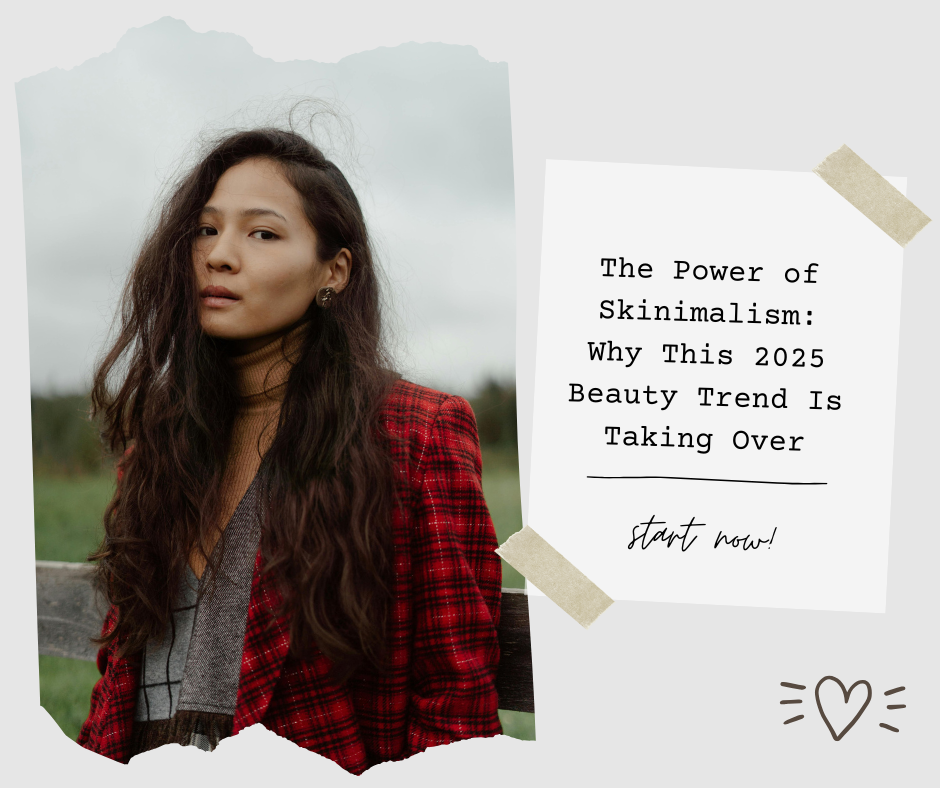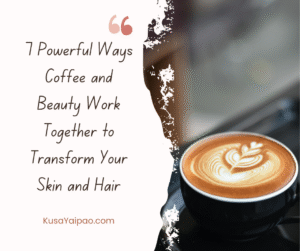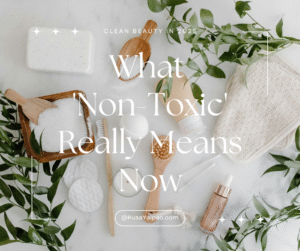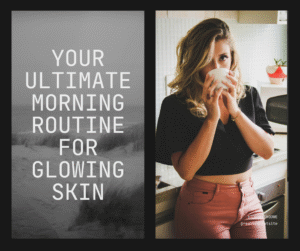This post may contain affiliate links. I may receive compensation if you sign up for or purchase any products through the links below. As an Amazon Associate and affiliate marketer for many other businesses, I earn from qualifying purchases. Please read my disclosure for more information.
Skinimalism is emerging as a revolutionary beauty trend in 2025, characterized by a commitment to minimalism in skincare practices and a celebration of natural beauty. It signifies a shift in consumer preferences, moving away from the previously prevalent culture of heavy makeup towards a more authentic and simplified approach to beauty. This trend recognizes the importance of healthy skin as the foundation of beauty, promoting skincare routines that are both uncomplicated and effective.
At its core, skinimalism advocates for the use of fewer, but higher-quality skincare products. The focus lies on enhancing one’s natural features rather than concealing them under layers of makeup. As consumers become increasingly aware of the potential harm caused by excessive product use, they are seeking out skincare solutions that prioritize skin health and longevity. This is coupled with a desire for transparency in ingredient sourcing, leading to more thoughtful selections in skincare regimens.
The rise of skinimalism can also be attributed to broader societal changes and cultural shifts, particularly in response to a fast-paced lifestyle and the overwhelming array of beauty products available. Individuals are increasingly gravitating towards simplicity, prioritizing self-care over beauty standards dictated by social media and advertising. This trend has been buoyed by the growing movement towards sustainability, with consumers favoring eco-friendly products that align with their values.
As we delve further into the notion of skinimalism, it becomes clear that this trend is not just a fleeting fashion; it reflects deeper insights regarding self-acceptance and the celebration of individuality. The embrace of skinimalism represents a poignant shift towards appreciating one’s unique beauty. It invites individuals to recognize that less can indeed be more, advocating for a holistic approach to skincare while reducing the complexities of conventional beauty norms.
The Evolution of Skincare and Beauty Trends
The trajectory of skincare and beauty trends has undergone significant transformations over the past several decades, influenced by a myriad of factors including culture, technology, and societal norms. The 1980s and 1990s represented a period characterized by elaborate makeup routines, with bold colors and heavy applications dominating the beauty landscape. Women often adorned themselves with layers of foundation, vivid eyeshadows, and strikingly vivid lip colors, reflecting both a sense of personal expression and the era’s vibrant aesthetic.
As we moved into the 2000s, the rise of celebrity culture and reality television brought a new set of beauty ideals to the forefront. Influential figures such as the Kardashians reshaped beauty standards, promoting a polished and often augmented appearance. This new wave of beauty was closely tied to social media platforms, where individuals could curate their personas and share their skincare and beauty routines with a global audience. The phenomenon of influencers and beauty gurus led to an explosion of beauty products and skincare regimens, further complicating the landscape.
However, the global pandemic drastically shifted perceptions around beauty and self-care. As people were confined to their homes, there was a pivot away from heavy makeup toward more natural looks. The necessity of wearing masks also emphasized the importance of skincare over makeup, compelling many to focus on enhancing their skin’s natural beauty. This transition paved the way for the emergence of skinimalism, a trend that advocates for a simplified skincare routine, prioritizing skin health over heavy cosmetics.
Today, beauty standards not only reflect individual choices but also echo wider social changes, prioritizing authenticity and wellness over perfection. The rise of skinimalism marks a significant cultural shift, signaling a desire for a more mindful approach to beauty and personal care in the coming years.
Key Principles of Skinimalism
Skinimalism is a burgeoning trend in the beauty industry that champions a minimalist approach to skincare and makeup, emphasizing the importance of adopting a ‘less is more’ philosophy. This principle focuses on simplifying beauty routines by encouraging consumers to limit the number of products they use, thereby reducing product overload on the skin. The aim is to promote healthier skin, allowing natural beauty to shine through without the need for heavy makeup. By embracing this philosophy, individuals are empowered to cultivate a more sustainable, user-friendly, and ethical beauty regimen.
A pivotal aspect of skinimalism lies in ingredient transparency. Consumers today are increasingly conscious of what they apply to their skin, leading them to seek products with clear and understandable ingredient lists. Skinimalism prioritizes formulations that utilize natural ingredients, removing harmful chemicals and synthetic components. This dedication to transparency not only builds trust between consumers and brands but also fosters a more informed approach to skincare. By opting for products that highlight their ingredient quality and efficacy, individuals can greatly improve their skin’s health and appearance.
Moreover, skinimalism emphasizes skincare over makeup, advocating for products that enhance natural beauty rather than mask it. This shift encourages the use of hydrating products that nourish the skin, such as serums, creams, and oils, allowing for a fresh and dewy complexion. Multifunctional skincare items are also gaining popularity as they serve multiple purposes without the need for numerous products. Embracing textures that feel light and comfortable on the skin further aligns with the skinimalism ethos, fostering an uncomplicated approach to beauty that prioritizes skin health above all.
Benefits of Adopting Skinimalism
Skinimalism, a blend of minimalism and skincare, advocates for a fundamental change in how we approach beauty routines. One of the foremost benefits of adopting this trend is the potential for significantly improved skin health. By focusing on fewer, high-quality products tailored to individual skin types, users can minimize irritation and adverse reactions, allowing the skin to breathe and function optimally. This practice encourages individuals to invest in products with clean ingredients, further supporting skin vitality.
In addition to the skin benefits, skinimalism offers the advantage of reducing the time spent on beauty regimens. Traditional beauty routines can often be elaborate and time-consuming, filled with numerous products requiring different application techniques. By simplifying the routine to essential products, individuals may find that they can achieve the desired results in a fraction of the time, allowing them to devote attention to other aspects of their daily lives.
Mental relief is another significant advantage associated with skinimalism. The pressure to adhere to traditional beauty standards can often result in stress and anxiety. By embracing a minimalist approach, individuals can foster a more positive self-image and greater acceptance of their natural beauty. Skinimalism empowers people to feel comfortable in their own skin without the need for the extensive makeup or skincare rituals often promoted by conventional beauty norms.
Moreover, skinimalism is inherently more sustainable. A minimalist beauty routine often leads to less waste, as it encourages consumers to purchase fewer products and reduces excess packaging. This not only benefits personal choices but also contributes positively to the environment. By embracing skinimalism, individuals take a step toward a lifestyle that prioritizes both personal well-being and ecological considerations.

Skinimalism vs. Traditional Beauty Routines
The evolving landscape of beauty has paved the way for new philosophies and practices, among which skinimalism stands out as a refreshing shift from traditional beauty routines. While conventional beauty practices often emphasize multiple products and lengthy application processes, skinimalism advocates for a minimalistic approach, centered on enhancing natural beauty with fewer, more effective products.
Traditional beauty routines frequently involve several steps: cleansing, exfoliating, toning, moisturizing, applying serums, foundation, concealer, blush, and a host of other products designed to achieve a polished look. This multi-step regimen can be time-consuming and may lead to several skin issues due to product overload, potentially clogging pores and causing irritation. Many individuals invested in these time-intensive rituals often experience product fatigue, feeling overwhelmed by the sheer volume of products available in the market.
In stark contrast, skinimalism encourages a streamlined routine, emphasizing quality over quantity. By focusing on a smaller number of essential products—like a gentle cleanser, a hydrating moisturizer, and a light sunscreen—skinimalism allows individuals to showcase their natural skin texture and features. This philosophy supports the idea that less can indeed be more. Practitioners of skinimalism often report experiencing improved skin health, as the reduced number of products minimizes the complexity of their routines and lowers the chances of adverse skin reactions.
Experts and skincare enthusiasts alike praise skinimalism for its effectiveness and accessibility. In a world where beauty often equates to perfection, skinimalism offers a liberating perspective that appreciates authenticity and encourages self-acceptance. By promoting a return to natural beauty, this philosophy appeals to a growing demographic seeking to simplify their lives amidst the chaos of modern beauty trends.
Real-Life Examples of Skinimalism
In recent years, skinimalism has gained traction, leading individuals to redefine their approach to skincare. Consider the experience of Sarah, a 32-year-old professional who once felt compelled to follow an elaborate 12-step skincare regimen. After discovering skinimalism, she streamlined her routine to just three essential products: a gentle cleanser, a hydrating moisturizer, and a broad-spectrum sunscreen. Sarah notes that her skin has never looked better, stating, “Embracing skinimalism has saved me time and money. My skin feels healthier and more vibrant, and I appreciate the simplicity it brings to my daily routine.”
Another inspiring case is that of James, a college student whose struggles with acne led him to various treatments. After adopting skinimalism, he focused on nourishing products designed for his skin type, replacing harsh exfoliants with natural oils. This shift resulted in a significant reduction in breakouts and an improvement in his skin’s overall texture. He shares, “I realized that less is often more. My skin has cleared up beautifully, and I’ve learned to appreciate its natural look rather than relying on heavy makeup to cover imperfections.”
Before-and-after comparisons also highlight the transformative power of this minimalist approach. For example, Emily, a 28-year-old beauty enthusiast, chronicled her journey on social media, showcasing vivid images of her skin pre- and post-skinimalism. By eliminating multiple serums and sticking to a well-chosen few, she achieved a radiant complexion, noting, “It feels liberating to let my skin breathe and embrace its natural glow. Skinimalism has changed my perception of beauty—it’s about enhancing what you have, not masking it.”
These testimonials reflect a broader shift towards valuing simplicity in skincare. As individuals prioritize their skin health and well-being, they find empowerment through skinimalism, affirming that less truly can be more when it comes to beauty routines.
Skinimalism and Influencers
The rise of skinimalism as a prominent beauty trend in 2025 is largely attributed to the influential power of beauty influencers and social media personalities. These individuals have carved out a unique niche where authenticity and relatability are paramount, allowing them to effectively promote the skinimalism ethos of minimalistic skincare and makeup. By prioritizing skin health over heavy cosmetic applications, influencers are reshaping expectations surrounding beauty standards.
One of the primary strategies that beauty influencers employ is the creation of authentic content. They curate tutorials that focus on showcasing their natural beauty, often using minimal products to highlight their skin’s texture and tone. This approach resonates with audiences seeking to embrace their natural selves, fostering a community that values simplicity and sustainability in beauty. Influencers often demonstrate the technique of ‘less is more’ in their routines, communicating that enhancing one’s appearance doesn’t necessitate extensive product use.
Platforms such as Instagram and TikTok have become instrumental in the proliferation of skinimalism. Influencers utilize these platforms not only to share their beauty routines but also to engage with their audience through comments, questions, and live sessions. TikTok, in particular, has launched trends that encourage users to showcase their unfiltered beauty, further normalizing the concept of skinimalism. The engaging nature of these platforms facilitates a dialogue where followers feel empowered to share their own experiences and tips, creating a supportive environment around natural beauty.
Moreover, the visual aspect of Instagram allows influencers to showcase before-and-after transformations that underscore the effectiveness of a simplified skincare routine. This fosters trust in their recommendations, particularly for products that uphold the principles of skinimalism. Through consistent engagement and relatable content, beauty influencers are playing a crucial role in the emergence and acceptance of skinimalism, making it more than just a trend but a lifestyle choice for many. As this movement continues to evolve, the contributions of these digital trendsetters will undoubtedly leave a lasting impact on the beauty industry.
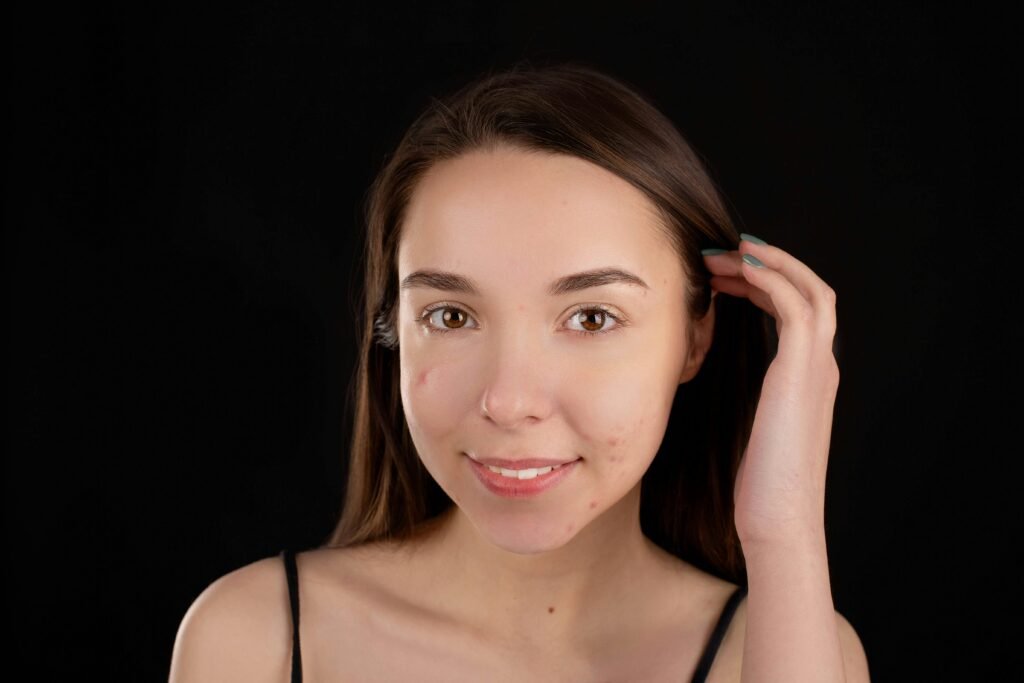
The Future of Skinimalism
As we venture deeper into 2025, the skinimalism trend, characterized by minimalism in skincare routines and an emphasis on natural beauty, is poised to evolve significantly. This evolution is fundamentally influenced by changing consumer preferences toward a more sustainable and conscious approach to beauty. With increasing awareness of the environment, many consumers are gravitating towards clean beauty products, which are formulated without harmful chemicals and toxins. As a result, brands are likely to adapt their offerings, ensuring that skinimalism aligns with eco-friendly practices.
Furthermore, personalized skincare is becoming a crucial component of the future landscape. Advances in technology, such as artificial intelligence and skin analysis tools, are enabling consumers to receive tailored skincare recommendations. This personalization could enhance the skinimalism philosophy, allowing individuals to focus on a few essential products that cater specifically to their unique skin concerns, thereby reducing the overall product clutter while still achieving optimal results. This intersection of skinimalism and advanced technology will likely redefine how consumers approach their skincare routines.
The beauty industry is also shifting toward transparency and authenticity, with consumers seeking brands that reflect their values. In this context, skinimalism appeals to those who appreciate products with integrity and a good formulation story. This trend dovetails with the ongoing demand for sustainability, as consumers increasingly prefer brands that promote ethical sourcing and environmentally friendly packaging. The transparency offered by brands that embrace skinimalism not only reinforces consumer trust but also reflects an enlightening shift toward making informed choices.
As beauty retail continues to evolve, skinimalism stands to gain even more traction as a fundamental philosophy. By integrating innovations in clean beauty and personalization, the future of skinimalism promises a revitalized focus on simplicity, efficacy, and sustainability within the beauty regimen.
Conclusion: Embrace the Power of Skinimalism
Throughout this blog post, we have explored the transformative beauty trend known as skinimalism, which advocates for a simplified and more intentional approach to skincare and makeup. By highlighting the essentials and prioritizing skin health, skinimalism encourages individuals to form a more meaningful relationship with their skincare routines. This trend not only favors fewer products but also emphasizes the significance of self-care and authenticity. As our societal norms evolve, the desire for a more natural and less artificial appearance aligns perfectly with the essence of skinimalism.
Moreover, the cultural implications of adopting minimalistic beauty practices resonate deeply in an era overwhelmed by unrealistic beauty standards promoted by social media. Embracing skinimalism offers a refreshing shift towards appreciating one’s natural beauty and unique skin concerns, fostering a collective movement that celebrates individual diversity. By choosing to embrace this trend, individuals empower themselves to prioritize personal wellness, free from societal pressures and expectations imposed by traditional beauty norms.
As we witness the rise of skinimalism, it is crucial to remember that beauty should not be a measure of one’s worth but rather an expression of individuality and self-acceptance. By championing this approach, we foster a community that values authenticity, encourages self-love, and promotes holistic well-being.
For those interested in delving deeper into the principles of skinimalism and its broader implications, resources from esteemed publications like Allure and Vogue can provide further insights. Join the skinimalism movement today and redefine your beauty journey by choosing simplicity, health, and self-empowerment over the pressures of convention.

